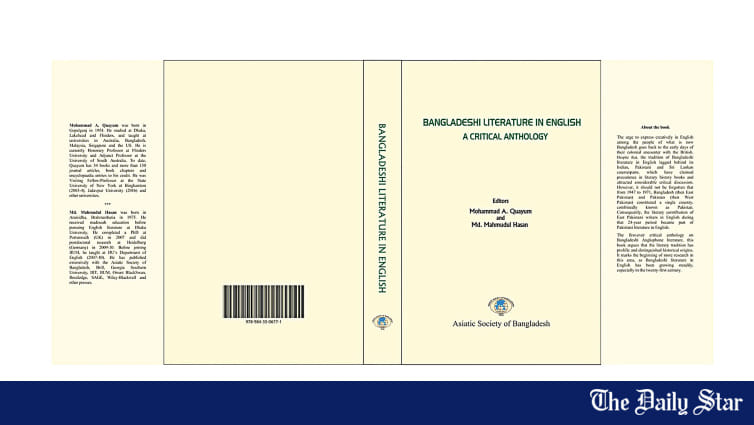I had the privilege of meeting Our Fellow member Humayun, a couple of days back here in Bangalore. We had some great discussion in general about books and in particular about the writing / Literary scene in Bangladesh. I have requested him to enlighten us here in detail. This is to get him started.
He had also 'gifted' me with two books from the Bangladesh, which I intend to start reading immediately. "Two Novellas" by Syed Shamsul Haq and "12 stories" by Hasan Azizul Haq. Both these books are published from 'Dhaka Translation Center's 'Library of Bangladesh' series.
The only prominent name for us, is Taslima Nasrin and I am not sure people know beyond that about the Bangladeshi writing. I've read Tahmima Anam's books, but that is more English than Bangladeshi.
As an outsider, I can imagine Bangladesh as a very 'fertile' land for great literature. The beauty of the language itself ( Bangla, divided between two countries which gave us some of the big names in Indian Literature like Tagore, Tarashankar Banerjee, Bibhutibhushan Bandopadhyay...), The Geographial/Natural positioning ( Two of the Largest River , Brahmaputra & Ganges, merge in its land) , the socio-political and Religious undercurrents, the 1971 independence etc..
To start with here is an article from NewAge today. http://www.newagebd.net/article/68696/our-literature-must-reflect-our-lives-mohammad-rafiq
‘Our literature must absolve itself of foreign influences regarding both content and form. Otherwise, we will produce just echo-literature which will not reflect our lives and reality,’
He had also 'gifted' me with two books from the Bangladesh, which I intend to start reading immediately. "Two Novellas" by Syed Shamsul Haq and "12 stories" by Hasan Azizul Haq. Both these books are published from 'Dhaka Translation Center's 'Library of Bangladesh' series.
The only prominent name for us, is Taslima Nasrin and I am not sure people know beyond that about the Bangladeshi writing. I've read Tahmima Anam's books, but that is more English than Bangladeshi.
As an outsider, I can imagine Bangladesh as a very 'fertile' land for great literature. The beauty of the language itself ( Bangla, divided between two countries which gave us some of the big names in Indian Literature like Tagore, Tarashankar Banerjee, Bibhutibhushan Bandopadhyay...), The Geographial/Natural positioning ( Two of the Largest River , Brahmaputra & Ganges, merge in its land) , the socio-political and Religious undercurrents, the 1971 independence etc..
To start with here is an article from NewAge today. http://www.newagebd.net/article/68696/our-literature-must-reflect-our-lives-mohammad-rafiq
‘Our literature must absolve itself of foreign influences regarding both content and form. Otherwise, we will produce just echo-literature which will not reflect our lives and reality,’


